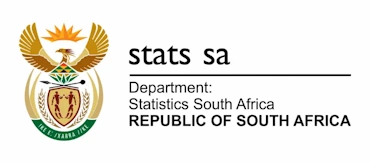Media release: The state of basic service delivery in South Africa
MEDIA RELEASE 30 March 2017
The state of basic service delivery in South Africa: In-depth analysis of the Community Survey 2016 data
Tremendous progress has been made over the past few decades in the delivery of basic services. The Community Survey 2016 found that 89,8% of households used piped water, 63,4% used flush toilets connected to either the public sewerage or to a local septic system, 63,9% of households receive refuse removal services, and that 87,6% of households had access to electricity.
These headline figures, however, hide a lot of variation across provinces, district councils and between local municipalities. Populations use a variety of service to satisfy their basic needs. Since using a single measure of household access would hide the combination of measures that are available in municipalities, this report uses an index to explore the complex interchange between different service delivery measures in more detail.
The combined service delivery index was highest for metropolitan municipalities (4,6) and lowest for rural municipalities (3,3). In terms of provinces, the highest composite scores were calculated for Western Cape (4,7) and Gauteng (4,6), while the lowest composite scores are observed in Limpopo (3,6), Eastern Cape (3,8) and Mpumalanga (3,9).
Although household perceptions of the services they receive vary greatly between municipalities, households in metropolitan municipalities are generally more satisfied than those in smaller municipalities, particularly rural municipalities. A simple correlation between municipal poverty headcounts and the available infrastructure shows a strong positive relationship. The relationship between household satisfaction with basic services and the quality of infrastructure can also be expressed as a strong positive correlation, meaning that poor households with inadequate access to services are most likely to be dissatisfied with those services. The report finally finds that 75% of households in South Africa did not believe that municipalities were actively addressing the issues they felt were most important for households.
About the report:
Municipalities are the most basic units of government in the country and are tasked with providing basic services and fostering development in the regions they control. Local government in South Africa is largely understood in terms of service delivery and the South African Constitution (Act No. 108 of 1996) assigns municipalities the role to mobilise economic resources towards the improvement of the lives of all citizens. Basic services are the fundamental building blocks of improved quality of life, and adequate supplies of safe water and adequate sanitation are necessary for life, well-being and human dignity.
The full report is available on the Statistics South Africa website: www.statssa.gov.za
Issued by Statistics South Africa
For technical inquires contact:
Dr Kefiloe Masiteng
Deputy Director-General: Population & Social Statistics
Tel: (012) 310 4663
Email: KefiloeM@statssa.gov.za
Dr Isabelle Schmidt
Chief Director: Social Statistics
Tel: (012) 337 6379
Cell: 082 884 4281
Email: isabelsc@statssa.gov.za
For media enquiries contact:
Ms Lesedi Dibakwane
Director: Public and Media Relations
Tel: (012) 310 8578
Cell: 082 805 7088
Email: LesediD@statssa.gov.za

